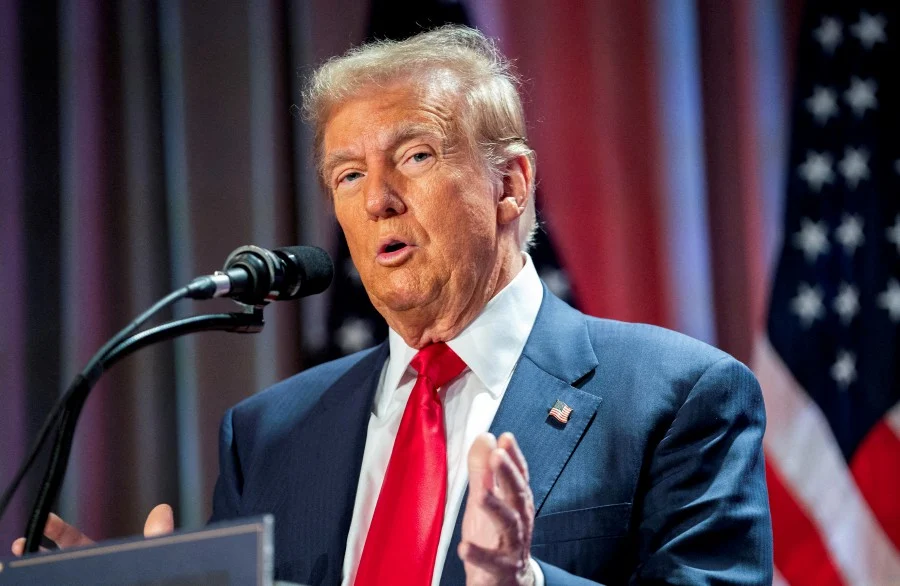As he worked to carry out his program, Trump even hinted at the possibility of new taxes on businesses, nations, and coalitions of states prior to his election.
After proposing that Canada become the 51st US state, he promised to use “economic force” against Ottawa and warned to impose taxes on China, Mexico, and Canada until they crack down on fentanyl and border crossings.
If the BRICS countries—Brazil, Russia, India, China, and South Africa—create a currency that competes with the US dollar, Trump also threatened to impose 100 percent taxes on them.
New trade battles have the potential to disrupt relations with allies, exacerbate tensions with Beijing, and shock the world economy.
As they await his initial actions, US producers, farmers, and small company owners brace themselves for increased import prices on everything from batteries to wines, while bracing for retaliation.
New Jersey restaurant owner Mark Pascal stated, “I’m not necessarily against all tariffs.”
Promotion
He claimed to see the justification for taxing a nation that unjustly controls prices.
Francis Schott, who co-owns restaurants with Pascal, added, “We’re concerned about any tariff that would apply broadly to wine and spirits, which is an industry that is not unfairly competing in any way.”
As he launched a full-scale trade war against the second-largest economy in the world, Trump imposed a number of tariffs during his first term, including ones on steel, aluminum, and Chinese imports.
As Washington and Brussels argued over airline subsidies in 2019, he levied tariffs on European food and beverages.
Although they were later put on hold, restaurateurs fear that small businesses would suffer if they returned.
Pascal stated, “It increased our expenses, so it increased our prices.”
Impact on a global scale
According to Joshua Meltzer of the Brookings Institution, Trump has already used tariffs as a negotiating tactic and is likely to do so again.
However, he said AFP, Europe is more prepared in terms of policy, and China is indicating opposition.
“It seems that governments have come to a similar conclusion that, at least at this point, they would be better off threatening retaliation than giving in,” Meltzer continued.
Gregory Daco, the chief economist at EY, cautioned that if tariffs and other policies are implemented to their fullest extent, they could cause stagflation, which is a state of economic stagnation accompanied by high inflation.
Among Trump’s other pledges is a general tax of at least 10 percent or more, with a steeper rate on China.
Risks to growth
Trump has promoted tariffs as a way to safeguard American manufacturing at home, along with deregulation and tax cuts that he claims will promote economic growth.
In an interview in November, Scott Bessent, his nomination for Treasury secretary, stated that even if there were a “one-time price adjustment,” tariffs would not cause inflation.
However, Daco predicts that within a year, rising import prices could raise consumer price inflation by 1.2 percentage points.
In the long run, it lowers the value of our salaries and decreases the US economy, according to Erica York of the Tax Foundation.
A universal 10 percent hike and an additional 50 percent on Chinese goods would reduce deficits, according to the Congressional Budget Office, but they may also reduce real GDP.
An emergency?
Analysts predict that Trump may use the International Emergency Economic Powers Act to swiftly impose tariffs.
This gives the president the authority to control imports in the event of a national emergency, albeit legal action may make this difficult.
The trade legislation is a tried-and-true strategy; in the past, Trump has justified tariffs using Section 301.
However, this requires a government investigation, which takes extra time.
Additionally, he might raise tariffs on commodities that have consequences for national security under Section 232 of the Trade Expansion Act.
